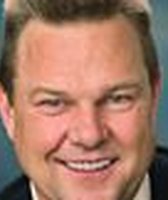Stand up for the facts!
Our only agenda is to publish the truth so you can be an informed participant in democracy.
We need your help.
I would like to contribute

The mail's here! And much of it (though not all) is chilly about our items.
Every so often, we open up our mailbag to share some of the most interesting comments we’ve received from readers recently. Here’s a sampling.
A reader commented on our fact-check of Rick Santorum’s claim that after prenatal diagnosis, "90 percent of Down syndrome children in America are aborted." We rated it Half True.
I think you've missed an important factor. You amend Santorum's statement with the text "after prenatal diagnosis", which is understandable from the context in which the statement was issued, but is excluded from his statement itself.
Why is this important? Prenatal diagnosis isn't risk-free. Therefore doctors should, and often do, recommend parents to think about whether or not abortion is something they would consider before doing the test. If for whatever reasons terminating the pregnancy isn't an option the parents would consider, then why would they take the risk of the procedure."
***
One reader offered an addendum to our look at Santorum’s claim that "over 40 percent of children born in America are born out of wedlock." We rated that True.
"Your correctly concluded that Santorum's statement that 41% of births are out of wedlock is true. Unfortunately, you missed an opportunity to distinguish between unmarried mothers and single mothers. There is a growing trend in America for committed couples to not get married. The statement is indeed true, but you missed the real underlying issues."
***
One reader raised a concern about our check of a claim by Ron Paul that "today, gasoline hit $6 a gallon in Florida." After concluding that $6 gas was only on sale at two stations near Disney World, and that it was far lower at most other stations, we gave that a Pants on Fire.
"I can certainly understand why you rated his comment as less than truthful, and indeed having spent time around Disney World in Florida, would be hesitant to label any price around there as representative of the state. In the future, when candidates or pundits discuss the price of gas ‘hitting’ various price levels, would you consider the level to be hit if, say, more than 10 stations in a region were at that price? If not, would it take merely a larger number? If so, what? Or would you not recognize the price as having hit until the local, state, or national averages hit the mark?"
***
Our recent False rating for President Barack Obama’s claim that "preventive care … saves money, for families, for businesses, for government, for everybody" attracted a lot of comments, most of them negative.
One reader wrote, "Hey, guys. Your ruling that preventive care does not save money defies common sense. I think it's because your analysis is too narrowly focused on ‘preventive care’ equaling ‘expensive tests,’ like colonoscopies or mammograms. Preventive care could also take the form of a tax on sugar in foods to bring down the obesity rate, thereby saving money on treating type-two diabetes or eliminating sugary sodas from schools or educating women on better pre-natal care, or.... you get the idea. Everything preventive doesn't have to come with a huge price tag. Let's find ways to encourage personal responsibility for health-savings."
Another reader quoted one of the experts we interviewed saying that "sometimes preventive measures save money, sometimes not. The general message is that ‘it depends.’ " The reader continued, "This sounds like the definition of Half True. Why then, does Obama's statement get rated ‘False?’ "
***
Several readers responded to our fact check of a claim former President Bill Clinton made on The Daily Show that solar and wind energy are "both cheaper than nuclear right now." We rated that claim Half True.
Here’s a letter from the Nuclear Energy Institute.
"We believe your analysis was incomplete, and that your rating of President Clinton’s statement should be adjusted from Half True to Mostly False. You can find the analysis on our blog, NEI Nuclear Notes, and it’s summarized here:
"1. Your review of EIA data on wind and nuclear costs was incomplete. When delving into the numbers, PolitiFact only looked at one set of single-point cost estimates from EIA. In reality, though, the cost of building and operating power facilities falls in a range that depends on many factors such as financing, transmission requirements, available natural resources for renewables and performance of the operating companies. Wind turbines, like all other technologies, have a range of costs based on many variables. EIA shows that the upper end of wind’s cost range is more expensive than the lower end of nuclear’s cost range. Therefore wind is not always cheaper than nuclear.
"2. Not every area of the country receives adequate wind flow in order to generate affordable electricity. A substantial amount of wind cannot be built in places such as the southeastern U.S. due to a lack of natural resources. Areas with low wind resources will produce less electricity from installed turbines, which in turn cause higher levelized costs. A set of estimates drawn up by SCANA, a South Carolina electric utility, can be found by clicking here."
Several readers added that wind power is intermittent, which could change the cost calculation.
"This makes wind power a distinctly lower quality than power from nuclear reactors, which commonly run 18 months without an unscheduled break."
But wind-power advocates had their complaints as well.
"The DOE analysis was issued back in February 2011. A lot has happened in the solar and nuclear pricing sectors since then. Solar photovoltaics have experienced an epic collapse in prices in just the last six months, which subsequently triggered the collapse of Solyndra and other high-priced, high-profile producers.
"In the meantime, since no one has actually built a nuclear reactor in nearly three decades, price forecasts are highly unreliable."
***
On another environmental topic, one reader took issue with our Promise Broken for a pledge by Obama to mandate flex-fuel vehicles.
"The statement was made in 2007, when fuel efficient technologies were still competing and developing. I would also point to your own research that suggests, even mired in an economic slump, the federal government has purchased more ‘fuel efficient’ autos for their fleet. Gasoline-hybrid and electric autos have both surged under President Obama. And I would argue that since 2007, E85 vehicles have not proven their worth ... The aim was to drive the federal fleet using fuel efficient vehicles. He has delivered on that, albeit while taking two different routes, hybrid-gasoline and electric. The previous choice was just a clunker. Buyer beware."
***
A group representing community banks took exception to our analysis of a claim by Newt Gingrich that "community banks … are being destroyed by Dodd-Frank." We rated the claim False. Here are excerpts from a letter to PolitiFact by the Community Bankers Association of Georgia.
"If you had drawn your conclusions based simply on the fact that it is premature at this point to make such a statement, we would have found little fault with your article. However, to infer, as your article clearly does, that there is a direct cause and effect relationship between the passage of the DFA and the improved profitably of community banks (i.e. banks under $1 billion, per your definition) in the period since the passage of the DFA is completely and totally inaccurate. To be fair, your article concedes "the improving economy is probably a factor" in the improving profitability of community banks; however, your article clearly does give the passage of the DFA significant credit for this profitability improvement. ...
"Our contention is that the passage of the DFA and the improved profitability of community banks) are largely unrelated. While the exact cost of compliance with new rules resulting from the DFA is difficult to quantify, all knowledgeable parties concede the cost of this additional regulatory burden is expected to be quite significant. ...
"In summary, while we believe it is likely premature to make any definitive statements, the DFA is ‘destroying community banks,’ to infer the passage of the DFA has somehow improved community bank profitability and to reach a conclusion it is clear community banks will be totally unaffected by the DFA provisions restricting debit card fees are simply not accurate."
***
Several readers wrote to share their recollections for our article about Ron Paul’s claim that before Medicare and Medicaid were established in the mid-1960s, "there was nobody out in the street suffering with no medical care."
One reader wrote, "I was a Visiting Nurse in New York City in the years just before Medicare. We did give a lot of free care, that is true, but I still have nightmares about the conditions that some of my elderly patients lived in. Some lived in what amounted to closets with communal bathrooms and kitchens. I will never forget an old man, paralyzed by Parkinson' disease, tied into his bed, and fed oatmeal by the kindness of his neighbors in a single-room-occupancy apartment on Riverside Drive. His doctor, who had an office downstairs, had a bare-bones office which had multiple clues that what he really was was an abortionist, illegal in those days. Ah, the good old days."
***
Ralph Benko, a senior advisor for economics at American Principles in Action, took issue with our False ruling for a Ron Paul claim that a new national poll showed "the majority of the American people believe we should have a gold standard" for U.S. currency. Benko had been cited in our story.
"The Rasmussen poll upon which my co-author and I drew (as well as three state polls) shows a dramatic plurality -- close to a majority -- reflexively support the gold standard. That alone could be enough to make it Half True, especially considering the massiveness of the plurality. But more important, Rasmussen states forthrightly that if the question is couched as restraining the power of the politicians and bankers (as the evidence is compelling it would) a clear, even disproportionate, majority is, in fact, in support: 57 percent to 19 percent. Therefore, it would certainly appear to be a valid (‘true’) interpretation by the candidate that a majority supports the gold standard.
"Second, the characterization of some of what I wrote in a blog entry for the Lehrman Institute is flatly, and demonstrably, inaccurate. (They were flat right in another aspect, although they stated it very awkwardly.) It is universally agreed that the value of the dollar has eroded by some 95 percent since 1910 (some would argue 98 percent, some perhaps only 93 percent, but these are at most quibbles, not a dispute). This is a straight statistical fact, not an interpretation (or, ‘view’) and thus to say, as this does, that ‘this view is hardly universal among economists,’ is simply, flatly, wrong. ...
"Taking an over the shoulder shot against my propositions, implying that they are, at best, questionable, before ‘leaving the policy debate to others’ certainly hits a false note and, of course, denigrates the integrity and reliability of what I wrote. I would have had no objection to being presented as in a minority as an advocate of restoration of the gold standard, or that the mainstream of the economics profession believes restoring the gold standard to be unwarranted and even a bad idea. But that's not what you wrote.
***
One reader -- retired rocket scientist and NBC News consultant and commentator Jim Oberg -- wrote to add a footnote to our check of a David Brooks claim that Newt Gingrich "has suggested" that building "a mirror system in space" could improve the Earth’s habitability." That claim earned Brooks a True.
"Well done on the in-depth checking of that story, but sadly your sources never were able to tell you that a small space mirror was actually deployed in space, on a Russian Mir station mission back in the 1990s. Two experiments were actually performed, and the reflection from one of them was observed crossing the skies over Europe. How did you miss that? Well, it IS a far-out idea."
***
We’ll close, as usual, with a few bits of praise, some of them coming on the heels of criticism we’ve received for a couple of our ratings recently.
"Please don't let the swarm of negative comments affects your reporting. While I don't always agree with the decisions you come to, I believe what you do is very important. When I watch the news on TV, I can't help but feel that it is devoid of any real critical thinking. I think they are just telling people what they want to hear, and reinforcing opinions that the viewers already hold ... People like to have their own views reinforced, especially when it makes their brains release chemicals that make them feel good. This is why people gravitate towards news agencies that never challenge anyone's beliefs. Politifact's job is to stage an intervention."
***
"PolitiFact.com may be the only honest site on the web when dealing with those that would lead our country today. If every American had your dedication to discovering and publishing the truth, this country might have a chance of survival."
Our Sources
Reader e-mails to PolitiFact






































